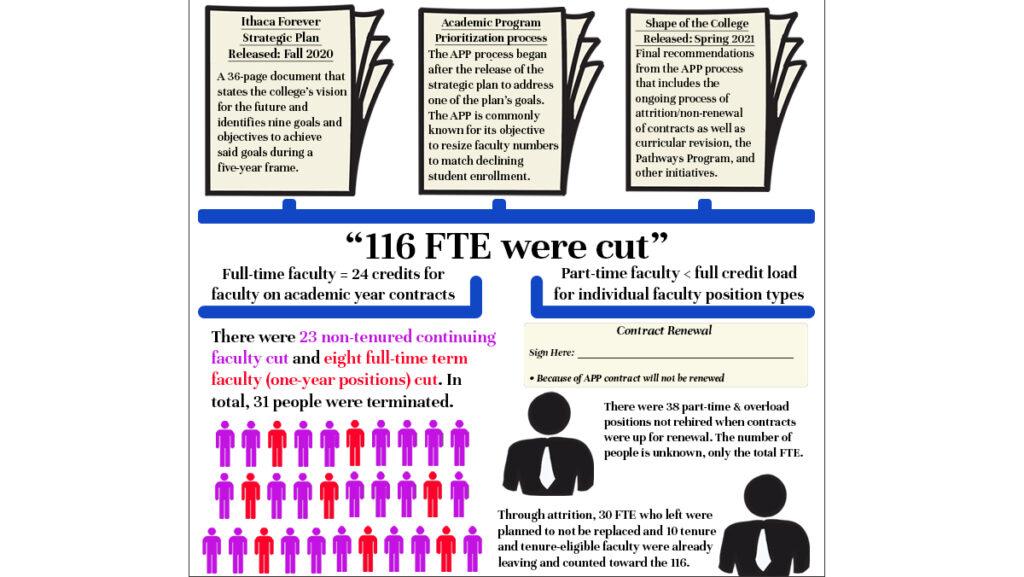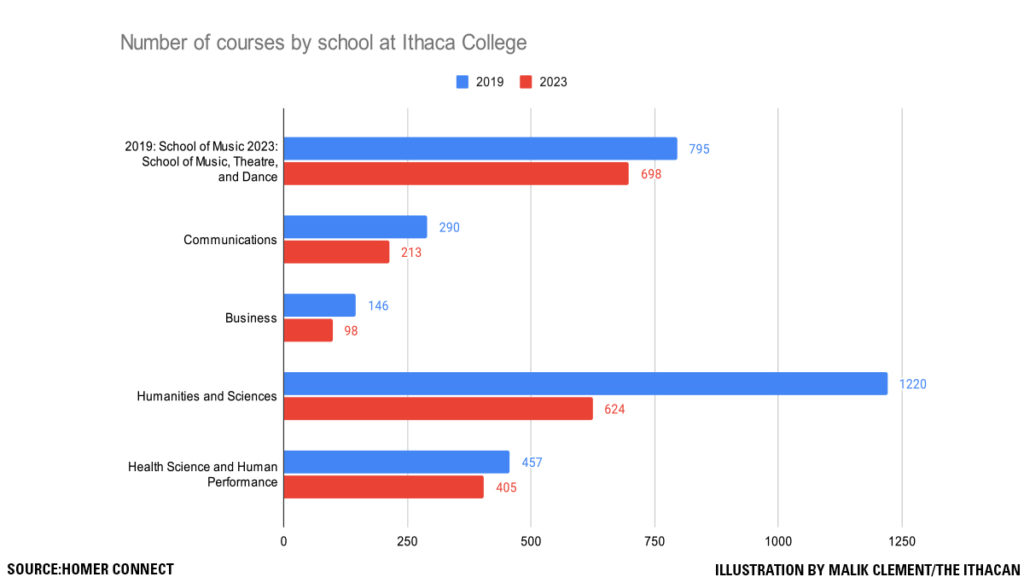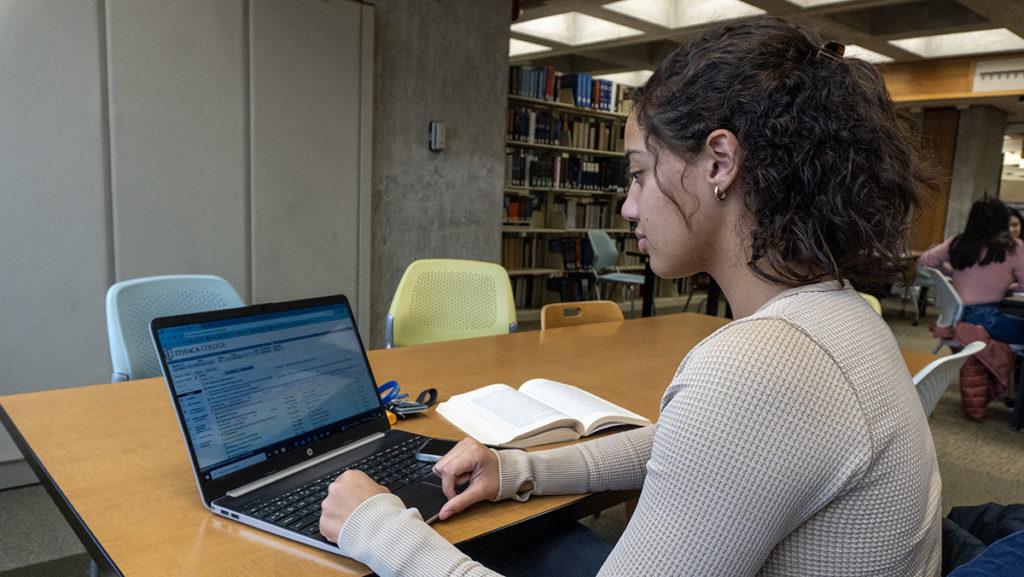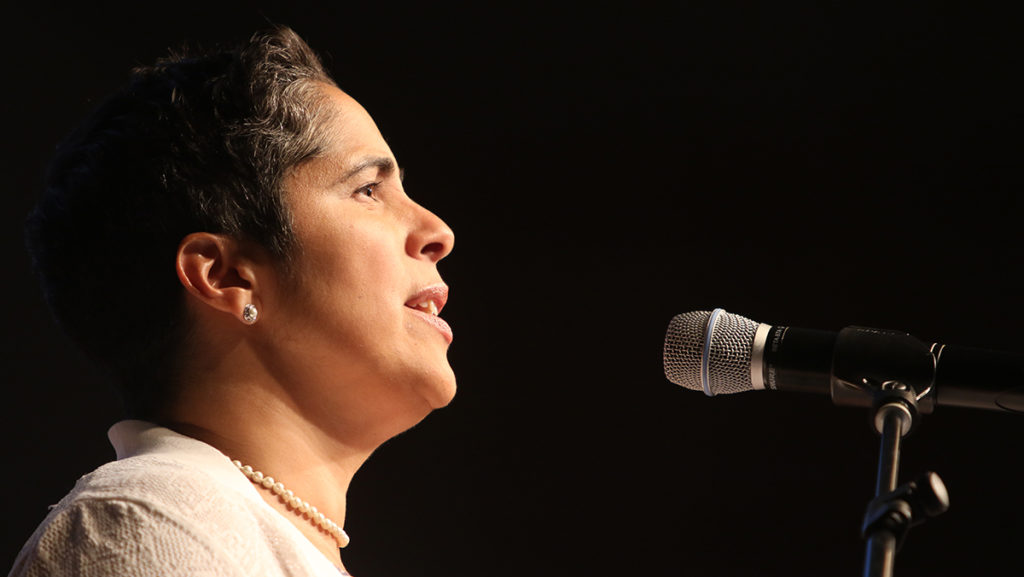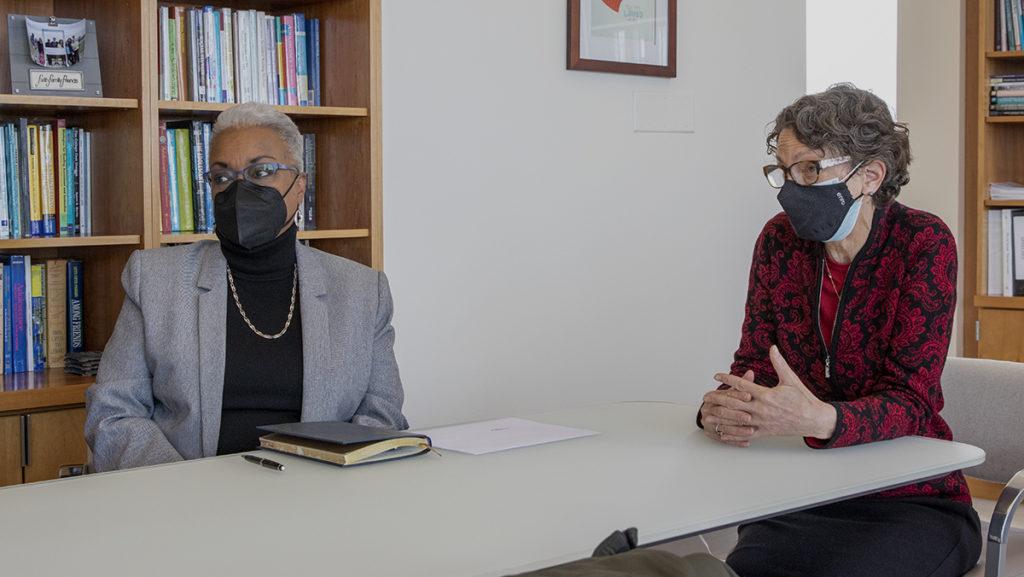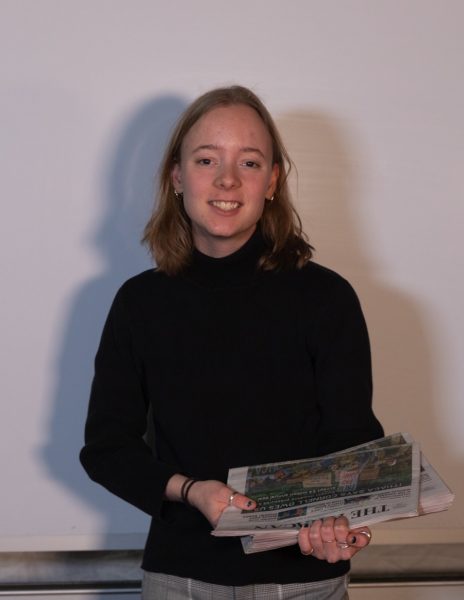As Ithaca College moves forward with the second phase of the Academic Program Prioritization (APP) process, some members of the campus community have concerns about how the move of the Department of Theatre Arts — currently housed in the School of Humanities and Sciences — to the School of Music will impact students.
The first phase of the APP included the elimination of 116 full-time equivalent (FTE) faculty and 26 majors, departments and programs. The second phase will focus on reorganizing and restructuring different academic areas, including moving the theater department into the School of Music.
The Department of Theatre Arts houses the theatre studies, acting, musical theatre, stage management, theatre production and design, and theatre arts management majors, as well as the dance and theatre minors. The department was ranked No. 1 out of 386 colleges and universities in the 2021 edition of the Princeton Review. The School of Humanities and Sciences houses over 50 majors, including musical theatre, acting, politics, economics, chemistry, biology and writing.
At an All-Faculty and Staff meeting in May 2021, interim provost La Jerne Cornish said moving the department would be a good way to explore the relationship between theater arts and music.
Some other colleges and universities with prominent music and theater departments have both departments housed in one school — like Carnegie Mellon University’s College of Fine Arts in Pittsburgh, Pennsylvania, and Elon University’s College of Arts and Sciences in Elon, North Carolina.
Steve TenEyck, professor and chair of the Department of Theatre Arts, said the goal is to begin the transition at the end of the 2021–22 academic year. He said both the School of Music and Department of Theatre Arts will report to the new Dean of the School of Music who has yet to be hired.
The college currently has four interim deans: Jack Powers in the Roy H. Park School of Communications, Alka Bramhandkar in the School of Business, Ivy Walz in the School of Music and Claire Gleitman in H&S. Gleitman was named the interim dean because Melanie Stein took on the position of interim provost for the academic year. The college decided not to conduct the dean searches in the 2020–21 academic year because of the COVID-19 pandemic. The interim deans will remain in place for the 2021–22 academic year.
TenEyck said there has been a transition committee created to figure out the details of the new structure.
“The reorganization is exciting for us in theatre,” TenEyck said via email. “We already have a strong relationship with music, especially with opera & musical theatre, but this realignment offers potential for more collaboration. Initially this move will not have much impact on the day–to–day life of theatre students, faculty and staff, as the move is mostly administrative. As the two units work more closely together — I can imagine more collaboration and synergies emerging.”
Sophomore Chloe Beehm is getting her bachelor’s degree in music and has an outside field of theater. She said that on top of her requirements for her music degree, she takes 23 credits of classes in the theater arts program overall. She said she is excited for the transition and thinks that it makes sense.
“I hope that there can be some benefits for students in the School of Music, because I feel like a lot of us music students are somewhat theater kids at heart, but we somehow just focused more on music itself instead of theater,” Beehm said. “But, I think we all have those interests. I hope with this merge, we all can get equal opportunities from it.”
Beehm said she was concerned about the logistics behind the transition because she has not received much information about it. She said she was also worried about how adding more students to the music school would impact current students, especially regarding registration for courses.
“I feel like with how the School of Music works, or how they register for classes and curriculum, if you want this class at this time, you have to get on that, otherwise it’s going to run out,” Beehm said. “And I just wonder how much more competitive that’s going to be with musical theater students. … I just wonder how that will impact us regular School [of] Music students. This is the norm for us and now we might have to work around that, so I think that’ll be very interesting. I don’t know how they’re going to work that out.”
Junior Molly Danieli, a production and design major with a concentration in sound design, said she is the concentration in sound design student representative on the Department of Theatre Arts’ department leadership team. She said the team has been discussing the decision a lot and that there is a lot of confusion surrounding the transition.
“We will definitely be under a different dean no matter what, and that certainly changes how things are run,” Danieli said. “But in terms of student perspective, I think a lot of students are saying, ‘Well, how does that change things?’”
She said she thinks there is a lot of overlap between the department and the School of Music, especially for students in sound design. She said she is personally excited at the prospect because she hopes it will make it easier for her to take music-based courses, but she has mixed feelings about how the decision was announced.
“I think the fact that they released it to us, but it’s still so up in the air about what it means, has very mixed signals,” Danieli said. “I feel like maybe there should have been a plan in place before it was released to the general public. … It’s just causing a lot of unnecessary stress and unnecessary tension that doesn’t need to be happening.”
Sophomore Becca Blacksten, an acting major, said she felt negatively toward the decision to move the Department of Theatre Arts. She said she feels the acting majors are not prioritized as much as the musical theatre majors.
Blacksten said she thinks the transition will make it harder for acting majors to take certain classes.
“It’s not making it easier for acting majors to take vocal lessons or keyboarding lessons, because we’re currently not allowed to take most of those,” Blacksten said. “It’s going to make it even harder for acting majors to get access to the resources that musical theater students have thrown at them, and it makes it so much more difficult for acting majors to get some very basic skills that they want to have, because the department is disadvantaging them and then not taking any accountability for it.”
Junior Naandi Jamison, an acting major, said vocal lessons have always been a point of contention for acting majors. She said some students in the acting program originally applied to the musical theatre program, but did not get in. She said many students in the acting program can sing and want to take voice lessons.
“But because we’re in the acting program, they don’t get the opportunity to do voice lessons,” Jamison said. “If you want voice lessons, you have to go find a voice teacher and pay for it out of pocket. And so a lot of people want to [take lessons] because in the professional world, a lot of musicals are not dance heavy. So you can be an actor who’s also just a good singer, and get booked in something really good. So a lot of people think that it’s very important as part of their training to be able to sing and have voice lessons, but it’s not readily accessible to us.”
Sophomore Noa Webner, a musical theatre major, said she was intrigued by the prospect of the merge, especially for opportunities that may be offered to both Dillingham and Whalen students. She said she wants to know if musical theatre students will be able to take longer voice lessons.
“I think it’s safe to say at this point that half-hour voice lessons can be frustrating at times and having a substantial amount of time to work with our voice teachers each week is an imperative component of our training,” Webner said via email. “Especially when you consider that most musical theatre B.F.A. programs across the country are able to give their students hour-long lessons, putting Ithaca students at a disadvantage.”
However, she said she feels like the college has kept students in the dark about the merger.
“What little we did hear about it was at a Dillingham performance major meeting at the beginning of this semester, in which faculty essentially stated some kind of integration between the two schools would happen in the Fall of 2022 and that even they don’t know exactly what it’s going to look like,” Webner said.



